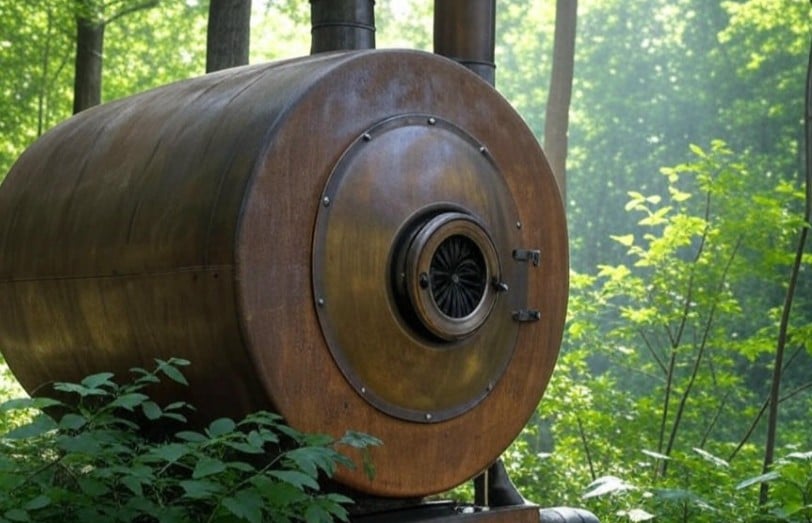How biomass boilers drive sustainable food processing and turn waste into clean energy?
Explore our latest blog on how biomass boilers are revolutionizing sustainable food manufacturing by turning organic waste into clean, renewable energy. Learn from global success stories, cutting-edge technologies, and key benefits driving this green transformation.
ENERGY AND POWER
4/16/20254 min read


Biomass boilers are reshaping the future of sustainable food processing by using renewable energy from organic waste. Companies like Kilcoy Global Foods in Australia are already reaping the benefits, replacing coal-fired boilers with biomass systems, they’ve reduced over 14,000 tonnes of CO2 emissions annually, aiming for 100,000 tonnes over seven years. This showcases how biomass technology supports low-carbon operations and waste-to-energy transitions across the food industry.
How biomass boilers convert organic food waste into heat and power?
Modern biomass boiler systems for food factories efficiently transform agricultural residues and food scraps into useful heat and electricity. For example, anaerobic digestion of 100 tons of food waste per day can generate power for up to 1,400 homes annually. Biomass combined heat and power (CHP) units reach energy efficiency levels between 70% and 90%. At Kilcoy Global Foods, plant waste and animal by-products are used to produce steam and hot water for daily operations, showcasing how eco-friendly boiler solutions reduce operational emissions and costs.
Examples of biomass boilers in food production
Across the globe, food manufacturers are adopting industrial biomass boilers to meet energy needs while going green. The Topeka food processing facility in the U.S. stands out as a benchmark for cost-effective biomass boiler deployment. A European dairy facility using wood pellet boilers cut energy use by 40%. Similarly, Attero's biomass system has been powering a potato processing plant with process steam since 2015. These success stories highlight how biomass boilers boost energy independence, reduce costs, and improve eco-efficiency in food production.
Environmental and economic benefits of using biomass boilers in food processing
Switching to biomass heating solutions slashes greenhouse gas emissions, supporting both carbon neutrality goals and cost savings. Because biomass fuels are carbon-neutral and often sourced locally, companies can cut up to 9.5 tons of CO₂ per year per system. Economically, a biomass CHP plant in Canada saved over C$3.6 million annually, reaching payback within six years. For eco-conscious food companies, biomass boilers offer a win-win: lower emissions and strong returns on investment.
Smart technology boosting biomass boiler efficiency in food plants
The latest innovations in biomass boiler technology are increasing efficiency and reducing emissions in food manufacturing. Features like automated fuel feeders, smart combustion controls, and particulate filters ensure over 90% thermal efficiency while meeting environmental regulations. Pellet-fueled boilers, known for cleaner burning and high energy output, are becoming the top choice for food plants aiming to adopt green manufacturing technologies without compromising performance.
Government incentives accelerating biomass boiler adoption in food industries
Global governments are offering strong support for businesses switching to biomass energy systems. For instance, Australia’s Emission Reduction Fund helped fund Kilcoy Global Foods’ biomass project while allowing it to earn from carbon credits. The U.S. Department of Energy has also allocated $135 million for industrial decarbonization, encouraging clean energy upgrades. With tax rebates on biomass boiler installations valid through 2032 in many countries, food manufacturers can reduce upfront costs and invest in long-term sustainability.
Key challenges and solutions in biomass boiler implementation for food plants
While biomass boilers offer clear benefits, challenges like feedstock availability and logistics need careful planning. Issues such as feedstock moisture content, inconsistent supply, and storage complications can affect performance. However, modern solutions like automated feeding systems, improved logistics, and advanced storage facilities are helping industries overcome these barriers. Research shows that building resilient biomass supply chains is critical for scaling adoption in the food sector.
Why biomass boilers are the future of eco-friendly food processing?
Biomass boilers help food companies convert organic waste into clean, renewable energy, drastically lowering emissions and operating costs. With real-world examples like Kilcoy Global Foods proving the benefits, and with support from government subsidies and cutting-edge technology, these systems are an ideal fit for any business committed to sustainable food production. For food processors seeking long-term energy savings, waste-to-energy integration, and compliance with green mandates, biomass boiler systems are the way forward.
